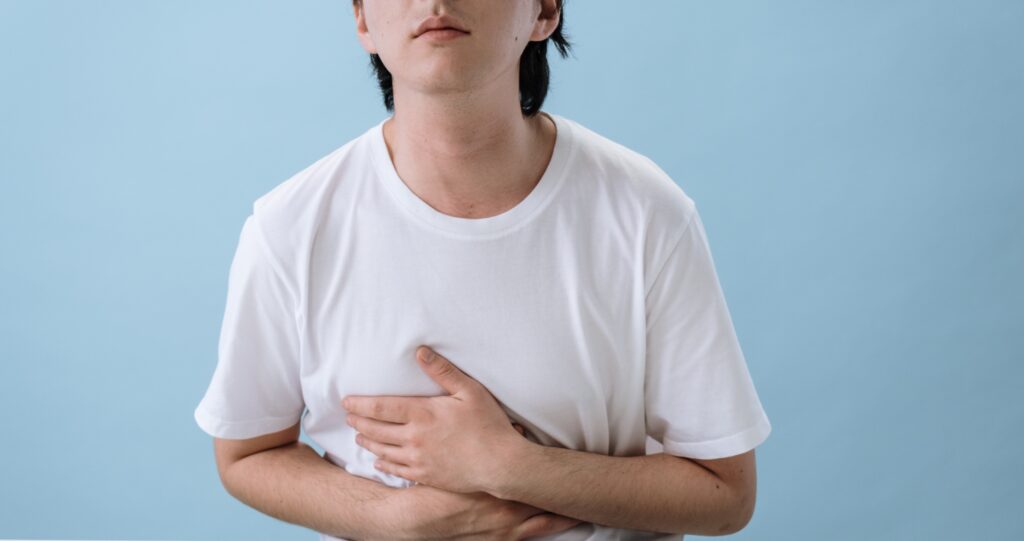Occasional anxiety that we all experience is natural as we all worry about health, family, and money. But persistent anxiety disorders involve more than temporary symptoms that do not seem to disappear but worsen. They interfere with our interaction with people at work, in the streets, and in public places. Let us look at the ten effects that anxiety can have on your physical and mental health.
But first, what is anxiety and what causes it?
Anxiety is a group of disorders that cause fear and worry. These feelings interfere with everyday functioning and blow out of proportion. Sometimes, people cannot pinpoint a trigger. They may feel anxious for no apparent reason.
Anxiety brings about many physical and mental symptoms. They vary from individual to individual, resulting in various levels of mild to severe disorders. The physical toll of anxiety can be overwhelming, but the physical effects are taxing too. For many, a panic attack immediately brings harmful biological effects.
10 ways anxiety can affect your physical and mental health

1. Nervous system
Your brain releases stress hormones and chemicals during panic attacks and long-term anxiety to alert you to a threat. However, prolonged exposure to these hormones can be more harmful in the long term, increasing physical symptoms such as headaches, depression, and dizziness.
2. Cardiovascular system
Anxiety disorders and panic attacks can cause palpitations, chest pain, and rapid heart rate. In addition, you may be at an elevated risk of developing heart disease and high blood pressure.
3. Digestive system
Anxiety can affect your digestive system. Some symptoms include various physical ailments such as stomachaches, diarrhea, appetite, and nausea.
4. Immune system
Anxiety can stimulate your fight-or-flight stress response by releasing chemicals and hormones into your body. Temporarily, this can increase your breathing and pulse rate to pump more oxygen into your brain. However, repeated feelings of anxiety can weaken the normal functioning of your immune system.
5. Respiratory system
Anxiety causes shallow, rapid breathing. Therefore, if you suffer from a chronic obstructive pulmonary disorder, you may be susceptible to a high risk of hospitalization due to anxiety-related issues. Asthma patients can also exacerbate their condition if they are constantly anxious or stressed.
6. Reliving experiences
Anxiety disorder can include long-term physical and mental health issues, including migraine, headaches, insomnia, muscle tension, social isolation, and depression. People diagnosed with PTSD may have flashbacks and relive the experience repeatedly, making them startle easily.
7. Chest pain
Anxiety can manifest itself as chest pain, which can be excruciating or a sharp and shooting pain.
8. Urinary changes
Stress and anxiety can increase the need to pass urine or have more incontinence symptoms than people with no anxiety disorders.
9. Social anxiety
Anxiety can cause social awkwardness in some people, called social phobias. They can manifest at parties, in everyday situations, at workplaces, or in any other place where you must talk to people.
10. Obsessive compulsiveness
Obsessive-compulsive disorder is a repetitive activity (or activities) you do to avoid mental discomfort. This behavior arises from unwelcome thoughts, urges, images, doubts or worries that sporadically appear. Repeatedly washing your hands or repeating a specific slogan in your head are examples of this disorder.
The importance of seeking help
Your worries can worsen over time and may cause long-term health issues if you do not seek help. Therefore, see your physician or seek medical help from your mental care provider so you can get the treatment you need.
There are various ways people can cope with anxiety disorder symptoms. Stress management meditation and techniques can be beneficial to some people. Support groups within your community can provide a chance to share coping strategies and experiences.
Access to lab testing at home can help identify if your anxiety may have an underlying cause such as a vitamin or hormone deficiency. Drip Hydration, Rejuve and LA Therapy offer mobile intravenous therapy to soothe your nerves and alleviate mild anxiety symptoms in the comfort of your home.









